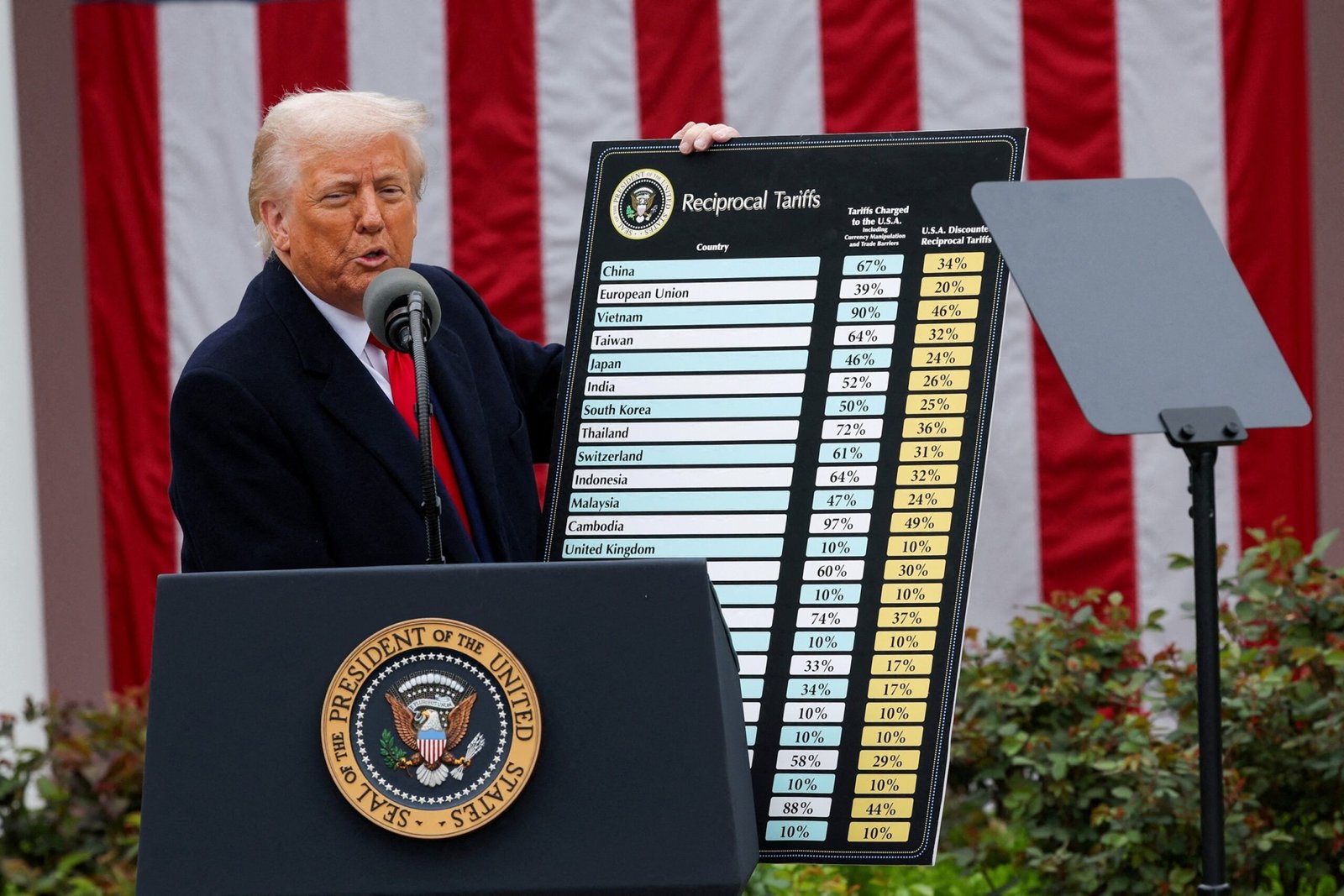American consumers are in a shopping -induced shopping spree. From furniture, appliances, alcohol, Americans rush to buy before the tariffs of President Donald Trump feel at the payment counter.
Economists say that tariffs are expected to increase the prices of everyday articles and that many are now increasing the probability that the economy falls into a recession.
Automobile sales increased 11.2% in March when cars buyers went into mass to concessionaires to exceed 25% rates in all imported cars, which entered into force on April 3.
Once Noel Peguero learned of the wider tariff ads, he said he reached stores. The 50 -year -old school worker, New York, says he spent around $ 3,500 last week in car parts, gardening and electronic supplies, including a 40 “7 -asense television and a MacBook laptop for your child.
“Now is the time to buy,” he told ABC News, adding that they were items that planned to buy anyway, but decided to buy sooner rather than later to avoid possible price increases.

President Donald Trump offers comments on rates in the Rosas Garden at the White House in Washington, DC, on April 2, 2025.
Carlos Barria/Reuters
While supplying some articles can now make sense, experts warn consumers who buy only what they can pay and not borrow to get ahead of the “tariff effect.”
“Many people are dealing with diminished savings and the increase in debt, so it is possible that they are not in a position to make a large purchase or gather a large reservation,” News Ted Rossman, an analyst at the Banklate industry, told ABC. “Take a long -term view. It may make more sense to lead your existing car for a little more or live with the old cooking cabinets plus year or two.”
With almost all US business partners. UU. Now subject to a 10% rate and even “higher” reciprocal “rates to arrive on April 9 for some 60 commercial partners who have a high commercial deficit with the United States, some consumers care that everyday items are soon not only more expensive, but more difficult to find.

People buy from an Apple store at Grand Central Station on April 4, 2025 in New York.
Michael M. Santiago/Getty Images
The mere thought evokes images of the shelves of the empty stores during the height of the Covid-19 pandemic, when the Americans were fighting for everything, from toilet paper to baking flour.
Billionaire businessman Mark Cuban added to those concerns this week, publishing on the Bluesky Social Network Platform that people should “Buy many consumables” Now before prices go up.
“From toothpaste to the soap, anything for which you can find storage space, buy before they have to replace the inventory,” Cuban said. “Even if it is made in the United States, they will increase the price and blame it for tariffs.”
Experts say they don’t anticipate any shortage.
“Of course, if everyone paid attention [Cuban’s] Tips, there would probably be some problems, but we are not seeing evidence that this is happening on a scale, “said Rossman.” Fortunately, the supply chain is in a much better way than during the pandemic. “
With the average American home that has about $ 6,600 in debt, according to Transunion, experts say it is important to adopt a measured approach and consider their long -term financial situation.
“I realize that sometimes people need to carry debt for several reasons,” said Rossman, “but I don’t get worse when buying in panic. Running to make a great purchase often does not end well.”




